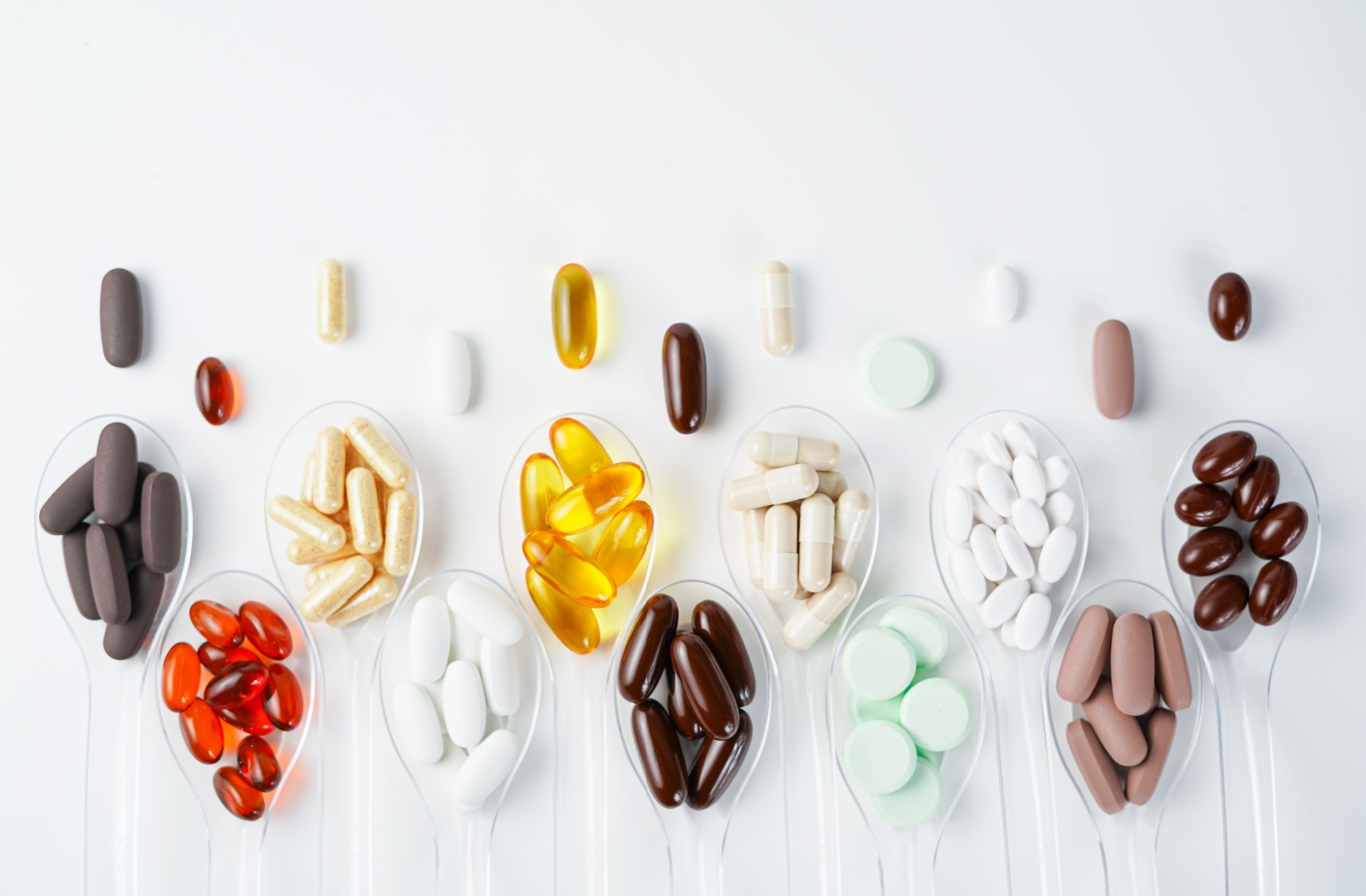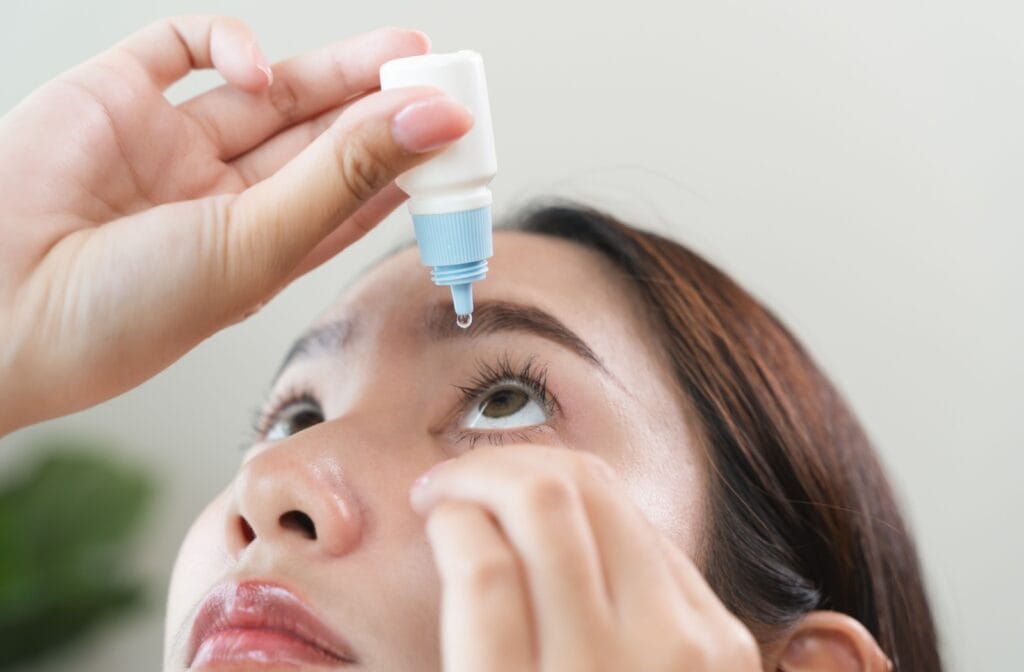Dry eyes can be a persistent and uncomfortable condition that affects many people’s day-to-day eye health. Whether caused by environmental factors, prolonged screen time, or underlying health issues, dry eye is an eye condition that often impacts quality of life. While artificial tears and specific medications are commonly recommended as treatments for dry eye, there is growing interest in nutritional supplements as a natural approach to alleviating dry eye symptoms.
In this blog, we’ll explore some supplements that may help manage dry eyes and improve your overall eye health.
Understanding Dry Eyes
What is Dry Eye?
Dry eye is a condition characterized by a lack of sufficient lubrication and moisture on the surface of the eye. This can occur when your eyes don’t produce enough tears, or when the tears produced evaporate too quickly. Tears are essential for maintaining the health of the front surface of the eye and for providing clear vision.
What Are Symptoms & Causes Dry Eye?
Before we dive into the supplements, it’s essential to understand symptoms and what causes dry eye.
Symptoms of dry eye include irritation, redness, a gritty feeling, and blurred vision. Factors contributing to dry eyes include aging, hormonal changes, environmental conditions, and certain medications.
Causes may include decreased tear production due to aging or medical conditions like Sjögren’s syndrome, rheumatoid arthritis, and diabetes. Certain medications can reduce tear production as a side effect. Environmental factors can also contribute to dry eye symptoms.
Top Supplements for Dry Eye Relief
1. Omega-3 Fatty Acids
Omega-3 fatty acids, particularly EPA and DHA, are known for their anti-inflammatory properties. Studies have shown that these essential fats can improve tear production and reduce the symptoms of dry eye. Omega-3s are commonly found in fish oils, flaxseed oil, and chia seeds. Including Omega-3 supplements in your diet may lead to improved eye lubrication and reduced irritation.
2. Vitamin A
Vitamin A is crucial for maintaining healthy eyes. A deficiency in vitamin A can lead to dryness by affecting tear production. This vitamin is vital for forming the protective mucous layer on the eye surface. You can find vitamin A in foods like carrots, sweet potatoes, and green leafy vegetables, or through supplements.
3. Vitamin D
Emerging research suggests a link between vitamin D deficiency and dry eye syndrome. Vitamin D has anti-inflammatory properties that can help alleviate dry eye symptoms. Spending some time in the sun can boost your vitamin D levels, but supplements can also be beneficial, especially in regions with limited sunlight.
4. Vitamin E
Vitamin E is known for its antioxidant properties, which can protect your eyes from oxidative stress. While it may not directly increase tear production, vitamin E can contribute to overall eye health. Almonds, spinach, and sunflower seeds are excellent sources of vitamin E, and supplements are widely available as well.
5. Lutein and Zeaxanthin
These carotenoids are found in high concentrations in the retina and help protect the eyes from blue light and oxidative damage. Though primarily known for benefiting macular health, they also support overall eye function. Leafy greens like kale and spinach are rich in lutein and zeaxanthin, and supplements are available for those who need an extra boost.
6. Zinc
Zinc plays a role in maintaining the health of the retina and may help reduce inflammation associated with dry eyes. It aids in the absorption of vitamin A and is found in foods like oysters, beef, and fortified cereals. Zinc supplements can also be a good option for those who do not get enough through their diet.

A Holistic Approach to Managing Dry Eyes
While supplements can offer significant relief, it’s essential to adopt a holistic approach to managing dry eyes. Here are a few additional tips to complement your supplementation:
- Stay Hydrated: Drink plenty of water throughout the day to keep your body and eyes hydrated.
- Take Breaks: If you spend long hours staring at screens, follow the 20-20-20 rule—every 20 minutes, look at something 20 feet away for at least 20 seconds.
- Use a Humidifier: Adding moisture to the air can help prevent tear evaporation, especially in dry environments.
- Wear Sunglasses: Protect your eyes from wind and UV rays, which can exacerbate dry eye symptoms.
Thinking About Seeking Professional Help?
Supplements can be a valuable addition to your dry eye management plan, providing essential nutrients that support eye health and mitigate discomfort. However, it’s always best to consult with an eye care professional before starting any new supplement regimen, especially if you have underlying health conditions or are taking other medications.
At ERC Optometry, we offer comprehensive eye care services, including expert advice on managing dry eyes. Our experienced team is here to help you find the best solutions tailored to your needs. Visit us today to learn more about our services, including dry eye care and contact lens fittings. Book an appointment with us at ERC Optometry and experience the difference of personalized eye care in a spa-like setting.
Your eyes deserve the best care possible—start your journey towards healthier eyes with us today!

